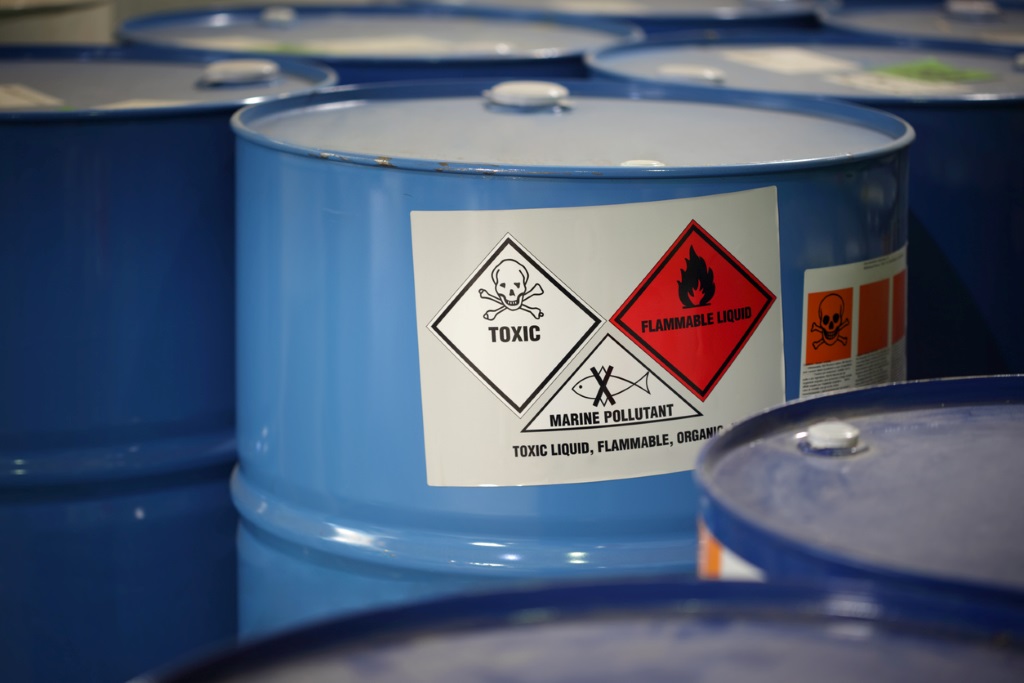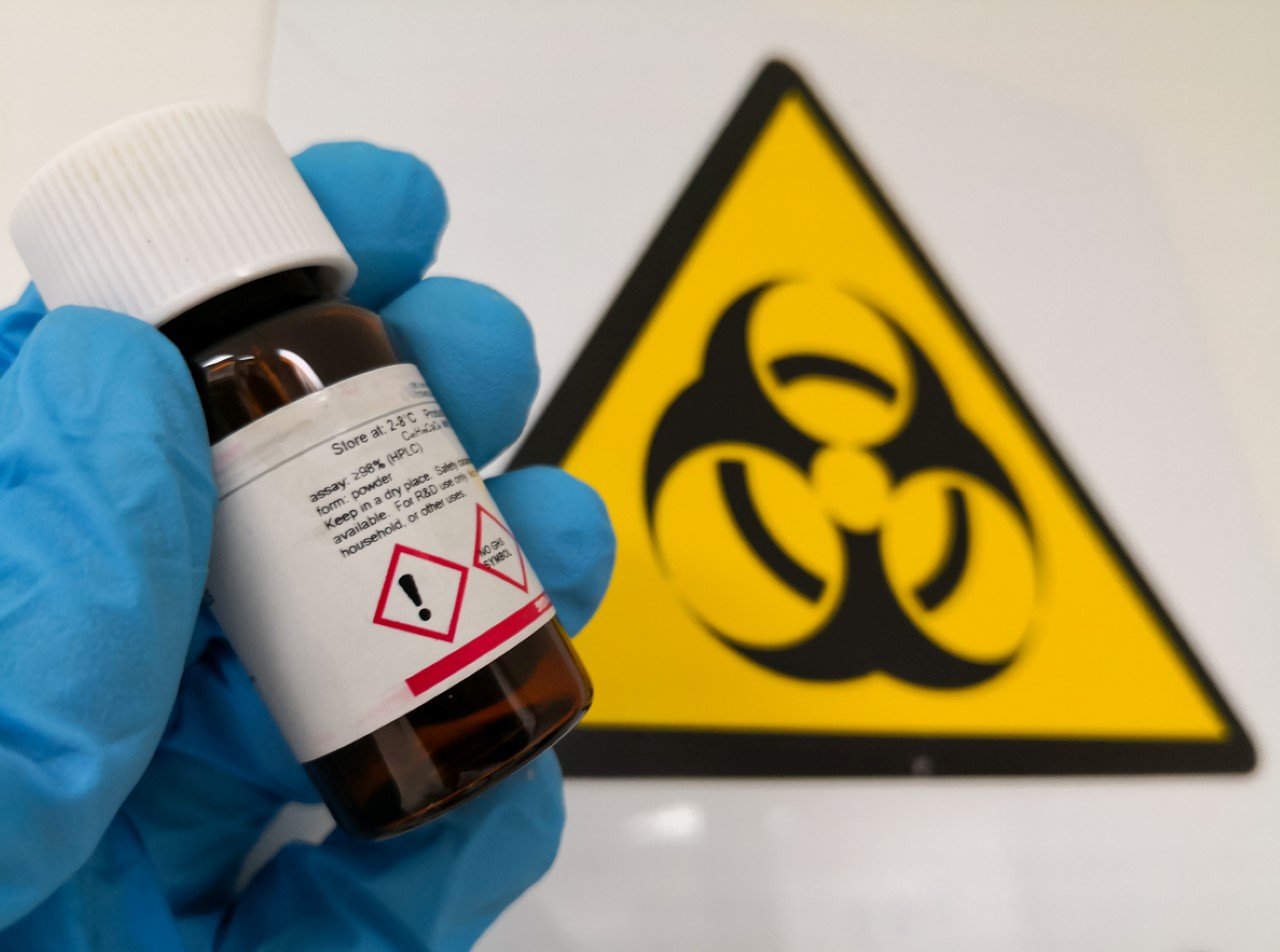Chemical Transport Logistics: The Role of Temperature Control

When it comes to logistics - and in particular the transportation of chemicals - you’re going to be presented with a unique set of challenges, not least of which is the critical role of temperature control. So whether you're a manufacturer, a logistics provider, or somewhere in between, understanding the nuances of temperature-controlled transport is essential for ensuring the safety, integrity, and efficacy of chemical products. In this blog post, we're going to take a closer look into why temperature control is so important, the types of chemicals that require it, the indispensable role of refrigerated trailers, and much more. Let’s get started.
The Importance of Temperature Control in Chemical Transport
When it comes to transporting chemicals, temperature control isn't just a luxury, but a necessity; many chemicals are highly sensitive to temperature changes, which can alter their chemical composition, reduce their effectiveness, or even render them hazardous. If you're involved in the chemical supply chain, maintaining the right temperature is critical to prevent product loss, comply with safety regulations, and fulfil your duty of care to customers and the public.
Plus, temperature fluctuations can lead to a variety of undesirable outcomes, including crystallisation, separation, or a change in viscosity. For some chemicals, exposure to extreme temperatures can trigger dangerous reactions, posing serious risks to handlers and the environment. In short, ensuring a stable, controlled temperature environment during transport is essential.
Types of Chemicals Requiring Temperature Control
The spectrum of chemicals that necessitate temperature-controlled transportation is broad and varied; this includes - but isn’t limited to - pharmaceuticals, petrochemicals, agrochemicals, and specialty chemicals.
Pharmaceuticals, for instance, often require strict temperature conditions to maintain their therapeutic properties, while agrochemicals - like pesticides and fertilisers - need to be kept within certain temperature ranges to preserve their effectiveness and prevent degradation.
The Role of Refrigerated Trailers in Chemical Transportation
So, how do you guarantee stable temperatures in transit? This is where refrigerated trailers come into play. These types of trailers aren’t just an asset but a necessity in the chemical logistics industry; refrigerated trailers, or fridge trailers, offer a controlled environment that can be precisely adjusted to meet the temperature needs of the cargo they carry. Whether it's keeping chemicals cool in the heat of summer or preventing them from freezing in the dead of winter, fridge trailers provide the versatility and reliability needed for transporting sensitive materials.
For those in the chemical industry, exploring fridge trailer hire options can be a game-changer: these trailers offer the flexibility to scale transportation capacity up or down as needed, without the overhead of owning and maintaining a fleet. This adaptability can be particularly useful for companies with variable shipping volumes or simply those looking to test new markets.
Regulatory Compliance in Chemical Transport
In the UK, regulatory compliance is another critical aspect of chemical transport; various national and international regulations govern the transportation of hazardous materials, and these often include strict guidelines on temperature control. Adhering to these regulations isn’t just a matter of legal compliance, but about ensuring the safety of everyone involved in the transport process and the general public - this is why fridge trailers, with their ability to maintain precise temperature conditions, can play a crucial role in helping your company meet these regulatory requirements with ease.
The Role of Temperature Monitoring Systems

It’s worth noting that one of the main benefits of hiring refrigerated trailers is that they’re often equipped with sophisticated temperature monitoring systems; these systems provide real-time data on the internal conditions of the trailer, allowing for immediate adjustments if the temperature deviates from the set parameters. This capability can be invaluable for ensuring the integrity of temperature-sensitive chemicals throughout their journey.
Best Practices for Temperature-Controlled Chemical Transport
When transporting temperature-sensitive chemicals, several best practices can help ensure a successful journey: these include thoroughly vetting transport partners for experience and compliance, using appropriate packaging that complements the temperature control efforts, and regularly calibrating and testing temperature control and monitoring equipment. Planning and communication are also key; clear protocols should be in place for responding to temperature excursions or equipment failures.
The Bottom Line
Overall, understanding the importance of temperature control in chemical transport is an absolute non-negotiable, and as the chemical industry continues to evolve, the demand for reliable, flexible temperature-controlled transportation solutions will only grow.
So, if you're looking to enhance your chemical logistics operations with temperature-controlled solutions, freezer trailers can be a great place to start. With the right approach and the right partners - like us at Ice Cool Trailers - you can navigate the complexities of chemical transport logistics with confidence and efficiency.
FAQs
What should I consider when choosing a refrigerated trailer for chemical transport?
When selecting a refrigerated trailer for chemical transportation, consider the trailer's size, temperature range capabilities, and the specific requirements of the chemicals you're transporting. Also, evaluate the trailer's insulation quality, the reliability of its temperature control system, and its compatibility with your monitoring equipment.
How do temperature excursions affect chemical stability?
Temperature excursions can significantly impact chemical stability, potentially leading to chemical degradation, loss of potency, or unwanted reactions. The specific effects depend on the chemical's nature and the extent of the temperature deviation from its optimal range.
Can refrigerated trailers transport multiple types of chemicals at once?
Yes - refrigerated trailers can transport multiple types of chemicals simultaneously, provided that the chemicals have compatible temperature requirements and do not pose a risk of cross-contamination or adverse reactions when stored together. Proper segregation and packaging are essential to ensure safety and compliance.
What is the role of packaging in temperature-controlled chemical transport?
Packaging plays a crucial role in complementing the temperature control efforts of refrigerated trailers, most notably in providing an additional layer of thermal insulation, protecting against physical damage, and materials that mitigate the effects of minor temperature fluctuations.



